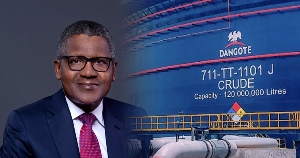The last few weeks at the Estadio de la Cerámica stadium have witnessed some dramatic turn of events. First, former manager, Javi Calleja left the club despite taking the club to a fifth-place finish last season.
Villarreal wasted no time in bringing his replacement, and that’s former Arsenal manager, Unai Emery. Emery’s appointment was a show of ambition by the Yellow Submarines.
Following Emery’s appointment, the club completed an eight million euros double swoop for Dani Parejo and Francis Coquelin from Valencia, who are having some sort of clearance sales for their players.
While they brought in the experience of Parejo and the qualities of Coquelin, Villarreal ensured the wage bill wouldn’t be a problem by releasing high earners like Santi Carzola, Bruno and Frank Zambo Anguissa.
They also sold Turkish star, Enes Unal, for a reported nine million euros to La Liga rivals, Getafe. However, for all of Villarreal’s dealings so far, it was the loan deal for Takefusa Kubo from Real Madrid that stood out.
Kubo is one of the best prospects in the Spanish top-flight and has been dubbed the ‘Japanese Messi’. While the moniker may be too extreme, Kubo is highly rated, and it showed in his displays for Real Mallorca at the just-concluded season.
The Japanese international was sent out on loan to Los Bermellones in what was his first year in La Liga last season.
But following Mallorca’s relegation to the Spanish second division, he returned to Madrid before he was sent out on loan again to Villarreal for next season.
While Kubo’s arrival is a massive coup for the Yellow Submarines, it could also be bad news for Super Eagles star, Samuel Chukwueze, who is Villarreal’s golden boy.
Chukwueze broke out in the 2018/2019 season, which was also his first season in La Liga. Although it was his debut campaign, the 21-year-old was one of Villarreal’s best players that season.
He was brilliant in games against Barcelona and Madrid, while he also made his international debut with Nigeria that season.
After his first season, it was apparent Villarreal had a gem in their squad. His profile was also on the rise, and he signed a deal with Roc Nation Sports.
The 2019/2020 campaign was Chukwueze’s second season at the Estadio de la Cerámica stadium, and it was expected the Nigerian would build on the performance from his first season.
Meanwhile, knowing they have one of the best young players in the world, Villarreal decided to tie down Chukwueze to a new deal with a release clause of 100 million euros.
His second season, however, was blighted with inconsistencies, and he only showed glimpses of his first season form after the league resumed from the coronavirus enforced break.
Chukwueze’s inconsistency was not a concern though, and one can say his form in Villarreal’s last 11 games at the just concluded season should provide optimism for next year.
However, that may not be the case with Kubo’s arrival set to provide competition. Both players are direct, like to take on defenders and cut into their right. They basically have the same style, which suggests they would be competition for the same position.
It’s hard to separate the two players judging from their performances last season. The Japanese scored four times and provided four assists in 35 La Liga games for a Mallorca side that suffered relegation.
In contrast, Chukwueze managed three goals and three assists in 37 league games for fifth-placed Villarreal. The Super Eagles star meanwhile created more big chances (8) than Kubo who managed just (4).
In terms of big chances missed, Chukwueze missed (3) while Kubo missed (0). Both players are amazing dribblers, but Chukwueze had a better dribble success percentage (56%) than Kubo’s (51%).
The Nigerian international’s decision making has been criticised, but he averages 1.1 key passes per game compared to Kubo’s (1.0), although the Japanese had a better pass percentage(75.3%) to Chukwueze’s (74.1%).
While both had similar stats, Chukwueze had just 20 starts in 37 league games last season, and with the arrival of Kubo, it means he faces more competition for a start.
Given Emery has now replaced Calleja as Villarreal’s manager, Chukwueze would need to convince the former Arsenal manager with his performances in training and on the pitch.
But with game time likely to be reduced as a result of Kubo’s arrival, the Nigerian may do well to consider a move away from the club.
At the age of 21, Chukwueze’s needs more games to continue in his trajectory. While the competition for places could be a good thing for his game, playing and starting many games is more important.
The Nigerian is a valuable asset for Villarreal, but Kubo’s reputation as a Real Madrid young star could also play into Emery’s mind.
Chukwueze’s development has gone so well at Villarreal, and it would be an exaggeration to say he is at crossroads at this stage of his career, but Kubo’s arrival could hinder his progress at the club.
Soccer News of Monday, 17 August 2020
Source: soccernet.com













